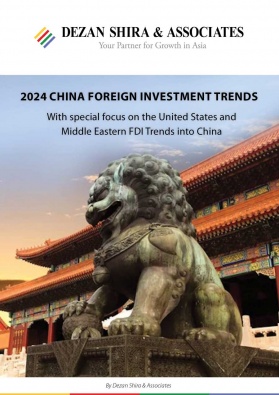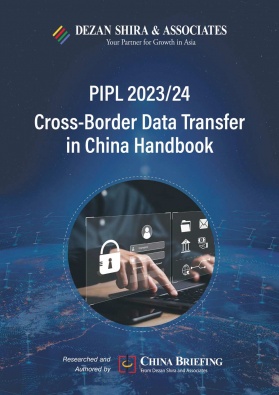China’s New Draft Regulations for After-School Tutoring
China’s Ministry of Education recently unveiled a new set of draft regulations aimed at reforming the after-school tutoring industry. These regulations, designed to enhance oversight and standardization, clarify various aspects of after-school tutoring, from licensing and scheduling to pricing and penalties.
On February 8, 2024, China’s Ministry of Education released the Regulations on the Management of Off-Campus Training (Draft for Solicitation of Comments) (hereinafter, the “draft regulations”). This new set of regulations for the after-school tutoring industry marks a substantial national-level effort to overhaul the sector. It follows a broader reform of the private tutoring industry initiated in mid-2021.
The 20-article draft was released shortly before the Chinese New Year holiday, allowing stakeholders to provide feedback until March 8, 2024.
In this article, we delve into the specifics of the new draft regulations, shedding light on their potential implications within the broader context of China’s dynamic education sector.
Context: Evolving policies in China’s education sector
China’s educational landscape has been subject to significant policy shifts in recent years, particularly evident in the government’s stance on private tutoring. Initially outlined in 2019 by the State Council, China’s education development plan aimed to foster a modern, high-quality, and equitable system, shifting emphasis from mere “capacity” to educational “quality”.
Fast forward to July 2021, the Chinese government implemented a far-reaching crackdown on the private tutoring industry, effectively prohibiting tutors from conducting for-profit classes in core curriculum subjects. Dubbed the “shuangjian” or “double reduction” policy, its primary objective was to alleviate financial strains on families and reduce academic burdens on students by curbing excessive homework and after-school tutoring.
Notably, the regulations primarily targeted compulsory education (Grades 1-9), making it illegal to offer curriculum-based classes for profit. Conversely, non-academic extracurricular activities like art and sports remained largely unaffected, while high schools (Grades 10-12) experienced minimal disruption across academic and non-academic domains.
Building upon these reforms, in September 2023, China’s Education Ministry announced that unlicensed tutoring services in the country could face fines of up to RMB 100,000 (US$13,715.54). The announcement represents an example of the government’s broader strategy to reshape China’s education landscape.
Overview of China’s draft after-school education regulations
Scope of after-school tutoring
For the first time, a clear definition of after-school tutoring is provided in high-level legislation. The term “off-campus training” as mentioned in the draft regulations is delineated as “organized or systematic educational training activities conducted outside the school education system, targeting primary and secondary school students as well as preschool children aged 3 to 6 with the main purpose of improving academic performance or cultivating their interests and talents”.
As per this definition, the unpaid, occasional, and simple counseling provided by relatives and friends is excluded from after-school tutoring activities that are subject to the regulations.
Classification and management
The draft regulations outline the procedural framework governing the licensing and approval processes in the after-school tutoring sector.
They introduce a classification system for after-school tutoring, distinguishing between:
- curriculum-based academic tutoring; and
- non-academic tutoring.
The methods for this classification will be jointly determined by the State Council’s education administrative departments in collaboration with departments overseeing science and technology, culture, tourism, sports, and related fields.
Licensing and approval
The draft regulations delineate licensing and approval procedures, stipulating that after-school tutoring activities must acquire specific licenses and meet the criteria of legal entities. The approval process may vary depending on the nature of the tutoring and the administrative jurisdiction involved.
According to Article 6:
- All after-school tutoring institutions are required to obtain a “License for Off-Campus Training Institutions” (in Chinese, 校外培训办学许可).
- Institutions offering curriculum-based academic tutoring to compulsory education stage students must register as non-profit organizations.
- Providers of online tutoring services must obtain approval from provincial-level educational administrations.
In addition, Article 7 mandates that after-school tutoring institutions maintain favorable credit status and adhere to conditions, such as suitable organizational structures, personnel, financial resources, facilities, and management protocols.
Meanwhile, another point that should be noted is that after-school tutoring institutions are required to include the term “tutoring” in their names.
Regarding qualifications and personnel, subject-specific tutoring institutions must employ teaching and research staff with teaching credentials, while non-subject-specific institutions should hire personnel with relevant professional qualifications.
The draft regulations explicitly forbid kindergarten, primary, and secondary school educators and researchers from participating in after-school tutoring activities.
Regarding instructional materials, those utilized in after-school tutoring must be reported to the approval authority for documentation. Notably, materials used in non-subject-specific after-school tutoring must also be concurrently submitted to the industry regulatory department for record-keeping.
Timing and schedule of after-school tutoring
The draft regulations specify that after-school tutoring sessions must be scheduled outside of regular primary and secondary school teaching hours and should not be conducted during national statutory holidays, rest days, or summer/winter vacations for compulsory education stage subject-specific training.
Provincial-level departments of education, collaborating with industry regulatory bodies, may establish specific regulations regarding the duration and timing of tutoring sessions.
Testing and competitions
After-school tutoring institutions are barred from organizing or taking part in exams or competitions for students in pre-school (aged 3 to 6), primary school, and middle school. Additionally, they are not allowed to disclose the academic performance or rankings of participants in training programs.
Furthermore, kindergartens and primary/secondary schools cannot consider participation in off-campus training or similar as factors for student enrollment.
Pricing, payments, and financial management
The draft regulations lay out guidelines regarding pricing, payments, and financial management in the context of after-school tutoring.
In particular:
- After-school tutoring for compulsory education stage students in specific subjects must adhere to government-set pricing guidelines established by provincial-level authorities.
- Prices for other types of after-school tutoring services must be registered with the relevant approval authority to ensure transparency and regulatory compliance.
- Funds acquired through financing and fee collection by after-school tutoring institutions are expected to be primarily allocated towards operational activities, including enhancing training facilities, improving the quality of educational services, and ensuring adequate staff welfare.
Moreover, the draft regulations outline guidelines regarding prepayment methods. Accordingly, after-school tutoring institutions that collect fees through prepayment methods must ensure that these funds are subject to regulatory oversight. Specific measures shall be formulated by the administrative department of education at the provincial level together with the relevant departments at the same level.
Establishment of a national oversight platform
The State Council’s education administrative department, in conjunction with relevant authorities, will set up a centralized national oversight platform for after-school tutoring.
Institutions offering after-school tutoring will be required to update and report relevant information on this platform to maintain its accuracy and reliability. These institutions are also mandated to use standardized contract templates provided by the State Council’s education administrative department when entering into agreements with participants or their guardians, ensuring compliance with the national oversight platform for after-school tutoring.
Regulatory compliance and penalties
Education administrative departments, industry regulatory authorities, and other relevant departments are tasked with enforcing off-campus training regulations in compliance with the law. Enforcement activities may involve:
- Inspections;
- Inquiries;
- Document reviews;
- Record keeping; and
- Other measures as outlined by applicable laws.
Violations of these regulations or related laws and regulations, including unauthorized after-school tutoring, undisclosed subject-specific tutoring, tutoring beyond permitted limits, managerial disarray, and illegal competition organization, will result in penalties as prescribed by education laws, laws promoting private education, and relevant regulations.
How to understand the draft regulations?
The release of the draft regulations marks another significant step in the broader restructuring of China’s after-school tutoring industry. The draft regulations are crafted to reinforce the rule of law within the tutoring sector. Rather than introducing entirely new rules, they primarily elucidate existing regulations enacted post the “double reduction” policy, consolidating scattered rules to a higher level of legislation.
Looking at the purpose of the draft regulations is fundamental to clearly understand the government’s position in this context, as off-campus tutoring is defined as a “means to fulfill diverse cultural education needs and promote the healthy development of young people” (Article 1) and a “beneficial supplement to school education” (Article 3). Therefore, the necessity and rationality of after-school training are underscored by the government as complementary to traditional school education, rather than being perceived as a threat or disruption to the educational ecosystem.
This further assures that after-school tutoring is not banned in China. Rather, after-school institutions can still operate in the country as long as they follow the rules.
On the other hand, the draft regulations do not indicate that China is relaxing its stance on the tutoring sector. Instead, off-campus training institutions will encounter clearer and stricter compliance requirements. Survival in the sector will hinge on adherence to these regulations, emphasizing the imperative of compliance for sustained operation amidst evolving regulatory standards.
Moreover, the definition of after-school tutoring has profound implications for educational technology (edtech). Following the implementation of the “double reduction” policy, many off-campus training institutions have shifted towards innovative educational products like smart teaching aids, digital publishing, and learning tablets. However, the draft regulations clearly define the boundaries between after-school tutoring and innovative educational products. While advanced learning tablets demonstrate efficacy in aiding student learning and potentially improving efficiency, they are not classified within the regulatory purview of off-campus tutoring. This distinction arises because the regulations primarily target entities organizing educational training activities, while learning tablets belong to a separate category of software and hardware products.
Thus, the emergence of educational companies dedicated to developing learning tablets represents a novel industry format, and the future trajectory of business prospects remains to be discovered.
All in all, amidst the shifting regulatory landscape, the after-school tutoring sector is poised for significant transformation. Providers must swiftly adapt to stricter regulatory requirements while realigning their operations with the government’s new standards. Although these changes may present challenges for some stakeholders, they also herald opportunities for innovation and enhanced delivery of educational services.
In navigating these regulatory changes and uncertainties, businesses in the sector are compelled to prioritize adaptability and compliance. The evolving terrain demands a proactive stance toward exploring new opportunities and adjusting to dynamic circumstances.
About Us
China Briefing is written and produced by Dezan Shira & Associates. The practice assists foreign investors into China and has done so since 1992 through offices in Beijing, Tianjin, Dalian, Qingdao, Shanghai, Hangzhou, Ningbo, Suzhou, Guangzhou, Dongguan, Zhongshan, Shenzhen, and Hong Kong. Please contact the firm for assistance in China at china@dezshira.com.
Dezan Shira & Associates also has offices in Vietnam, Indonesia, Singapore, United States, Australia, Germany, Italy, India, and Dubai (UAE). We also have partner firms assisting foreign investors in The Philippines, Malaysia, Thailand, Bangladesh.
- Previous Article China’s Gaming Industry: Trends and Regulatory Outlook 2024
- Next Article Hong Kong Removed from EU Watchlist Following Changes to Regulations on Foreign-Sourced Income



























